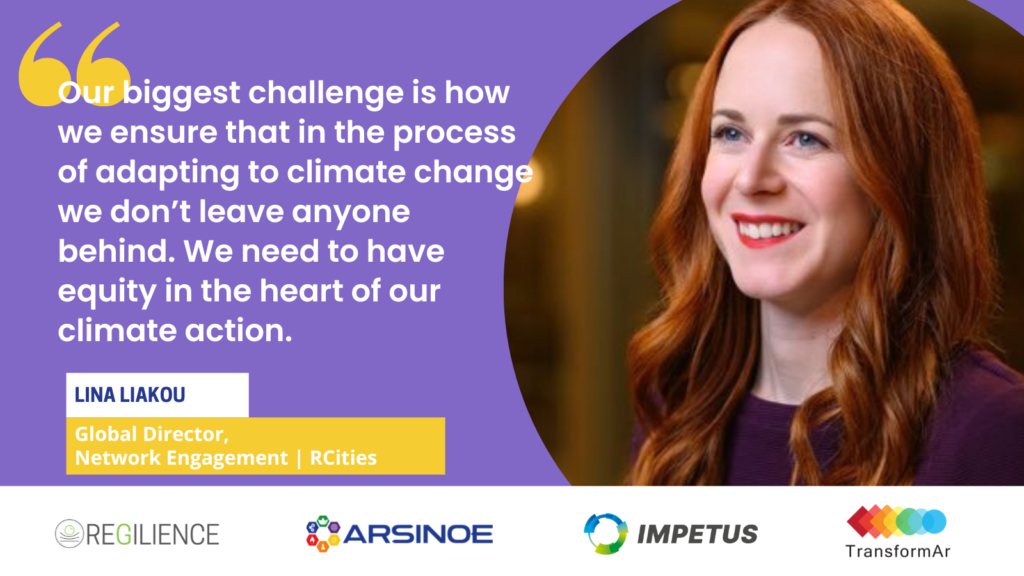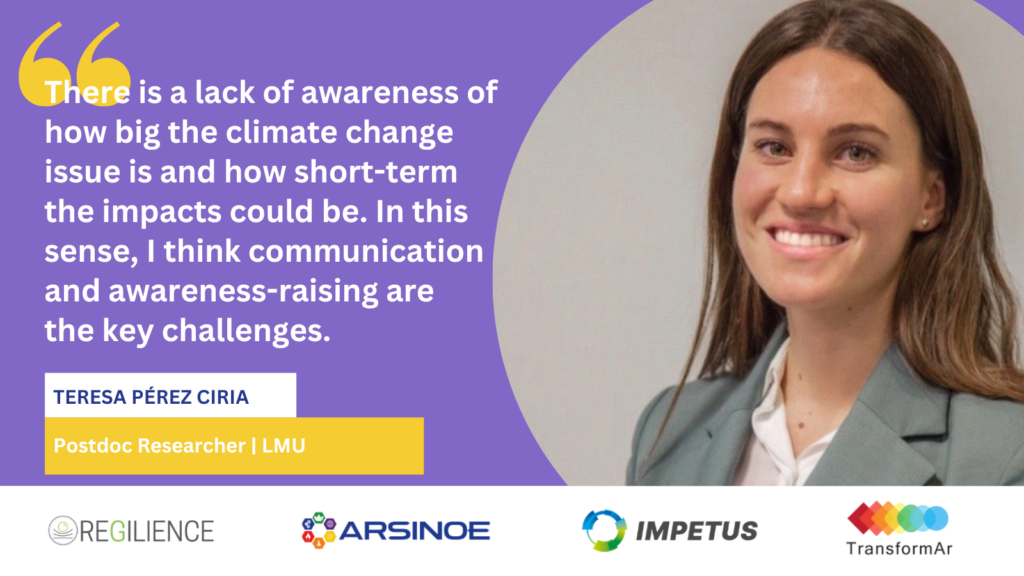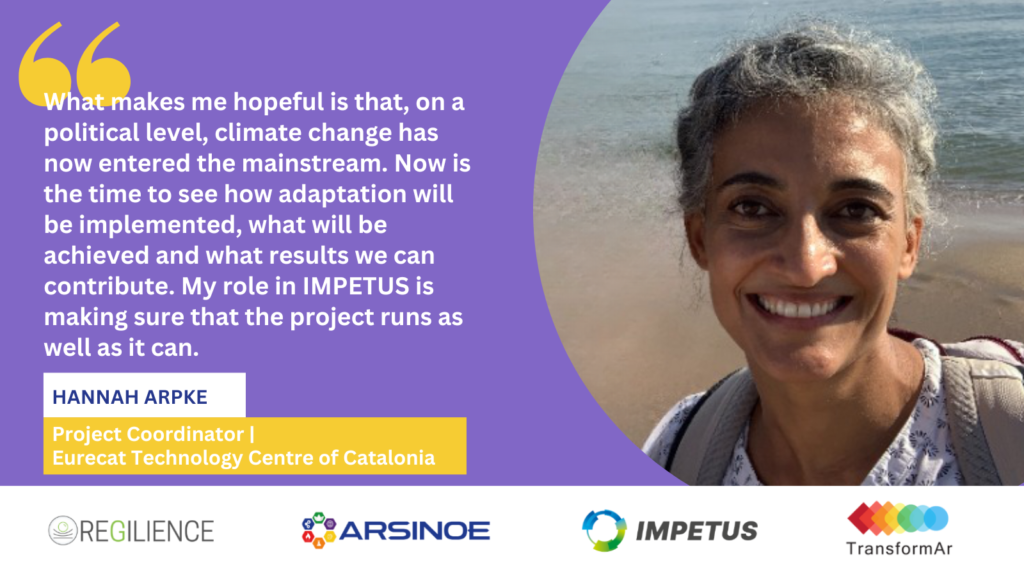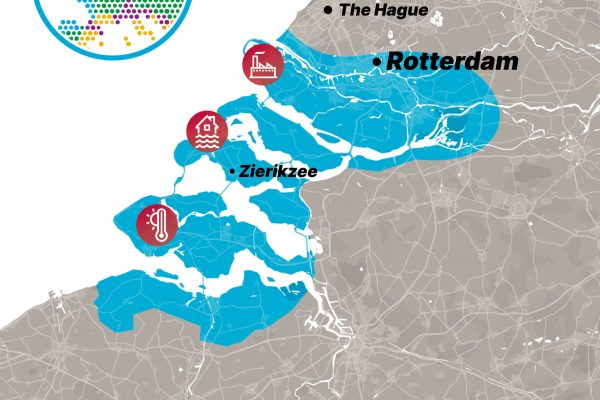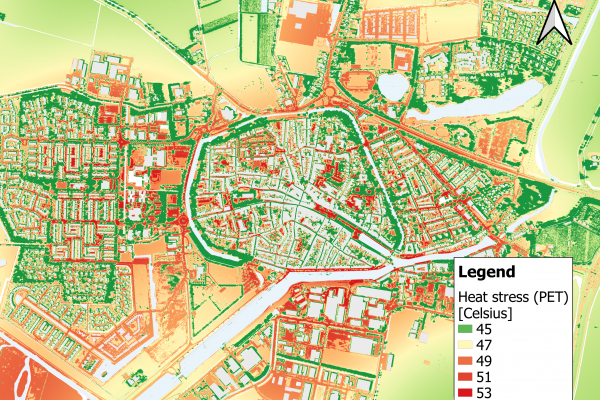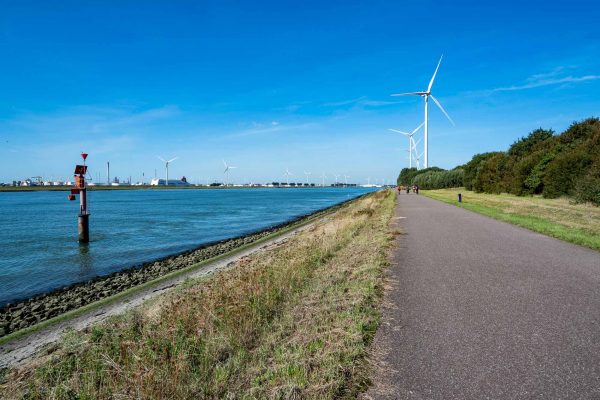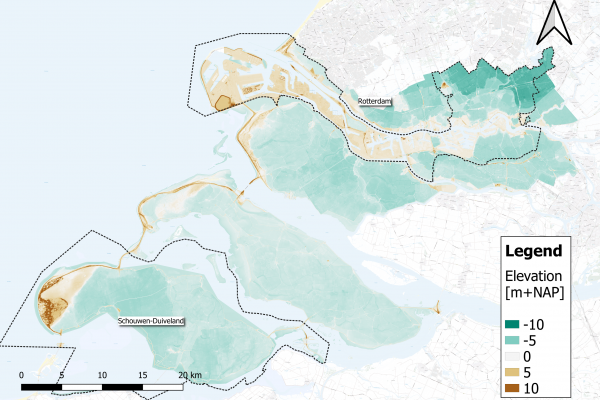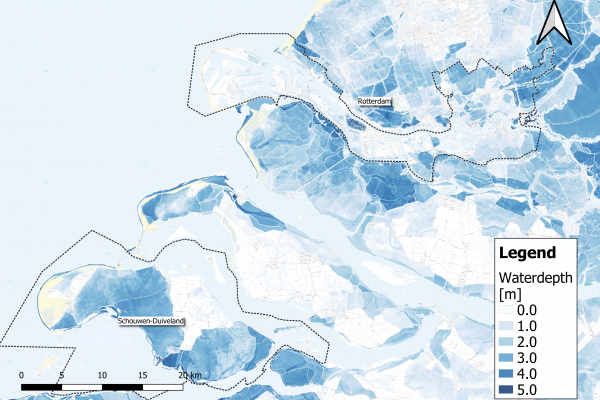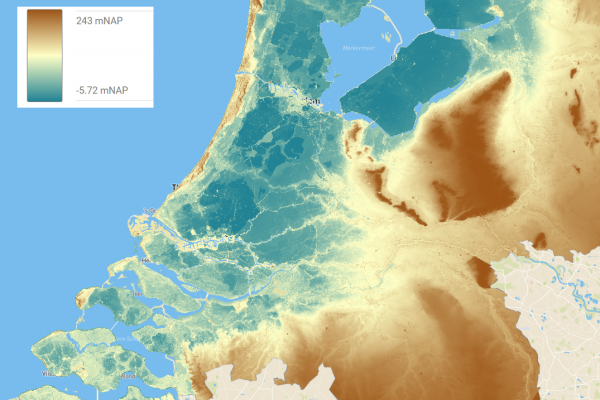The complex challenge of adapting to climate change requires collaboration between many fields of expertise and the diverse approaches of different projects. IMPETUS is working closely with sister climate change adaptation projects ARSINOE, TransformAr and REGILIENCE. Together, these involve many inspiring people whose skills and experience contribute in various ways to creating resilience and adaptation tools, solutions and initiatives. We will share some of their stories as the projects progress.
To start with, we decided to mark International Women’s Day – 8 March – by interviewing some of the impactful women in our projects. For IMPETUS, we spoke with project coordinator Hannah Arpke of Eurecat Technology Centre of Catalonia.
Hannah specialises in science and project management and sees herself as a ‘generalist’ whose contributions complement the many specialists she works with. She has been motivated to work in climate change adaptation because this has now matured as a political topic.
“There’s now an opportunity to contribute. The European Union has seen this is a critical area and come up with the Green Deal project programme, which we’re part of. It’s important for the European Commission to draw out lessons and strategies to adapt, because climate change doesn’t only affect Europe directly: it also affects migration flows, global trade chains, what makes people leave their countries and come to Europe – it’s all tied in together. So we must take this opportunity to make a change.”
Hannah’s journey to this point started in Ethiopia, where she was raised by her Ethiopian and German parents before the family moved to Germany. Feeling homesick, she took her mother’s advice to study something that would provide her a route back.
“I studied agroforestry and natural resource management. My interest was how to achieve more sustainable local production and reduce dependency on foreign trade. I worked with development NGOs such as Save the Children and Water Aid, and there got into citizen engagement, stakeholder participation, policy and governance. What are the studies needed to come up with a policy recommendation, how is it turned into strategy and how is it implemented on the ground? All of that interests me.”
In Ethiopia, Hannah managed research projects until 2007 when, with political changes in the country reducing the scope for NGO work, she moved back to Germany.
“I said to myself, okay, I like research and enabling people to do the best with what they have and I’m good at project management, so I decided to go into this. I’ve worked in many different institutions, for example for gravitational physics, biological or medical sciences. I like learning about a lot of areas and it’s been fun!”
Societal aspects
Coming from a natural science background, Hannah says she soon realised that social sciences are just as important to the success of projects.
“Every project runs through the people that work in it and project management is about managing them, their expectations and their communication. All the different fields must intertwine and the researchers bring their own and their discipline’s social context with them. You must make sure they have the tools and knowledge they need so that the work flows. You see the differences between cultures in the country setting too. In terms of climate change, now I’m in Spain, I see that the same things motivate the locals here as compared to Germany, but how they implement things is different and there is little social or political engagement. But I know the important question is, how do we make people understand what’s at stake and get them to a point of saying, okay, I need to change my behaviour.”
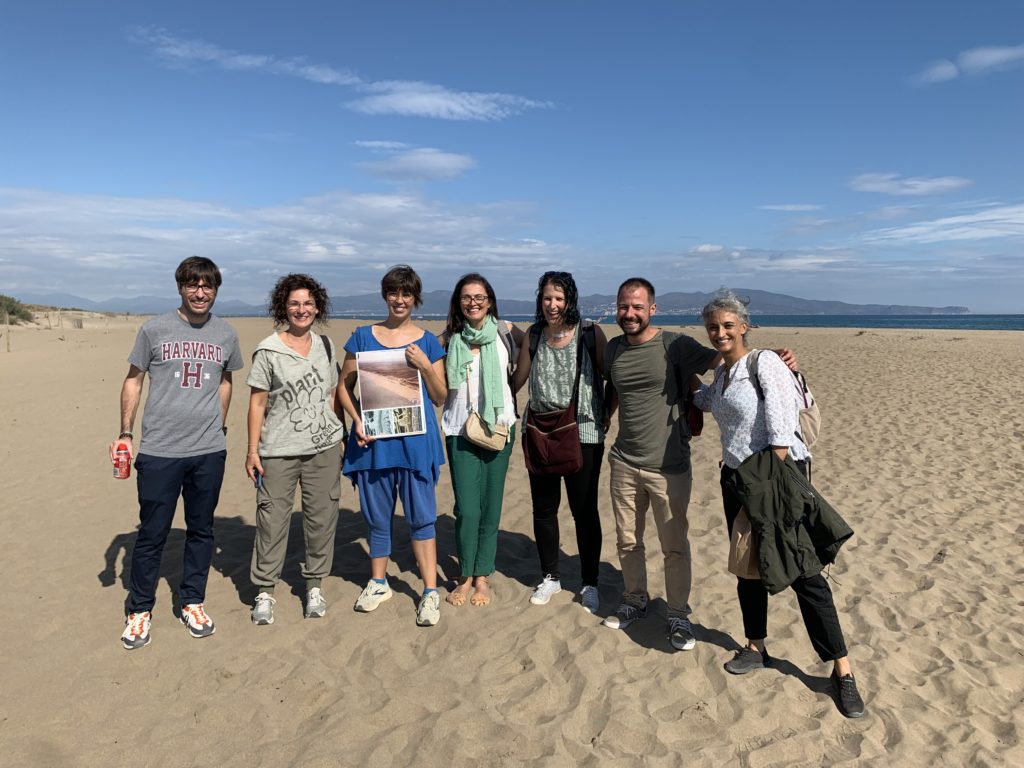
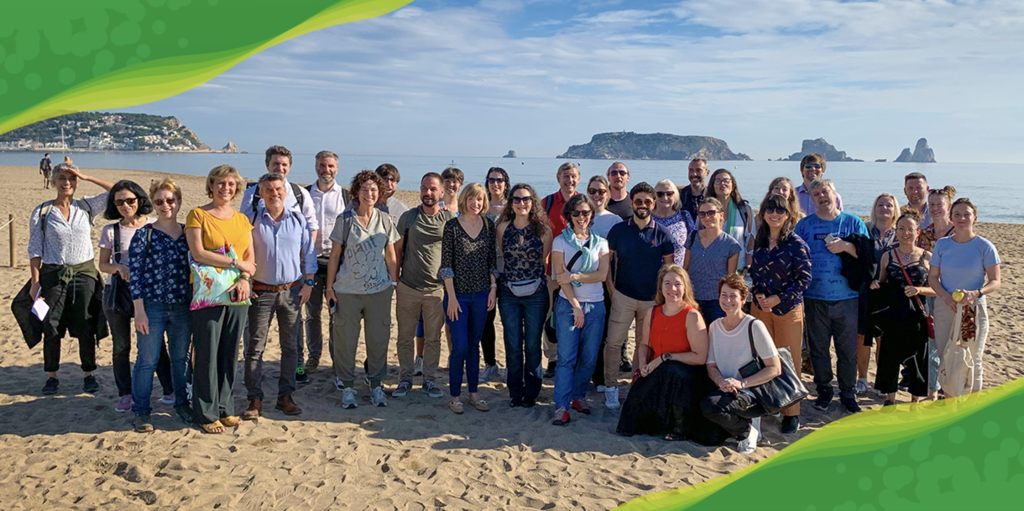
As climate change enters the European policy landscape at a higher and broader level, Hannah welcomes the increasing emphasis on involving citizens, institutional and private sector stakeholders.
“In order to be able to bring about change, you have to consider the natural resources, but you also have to involve the people in the area. For me, there is a red thread between all this that ties in very well with the research I did previously in Ethiopia and other countries. And working with people and engaging with stakeholders isn’t so different whether you’re in the Ethiopian countryside or on the Catalan coast. Everyone wants to live a happy, healthy, good life and the best for their loved ones. We need to find that key and grab people’s attention without turning to fear-based messaging.”
Policy insights
Because Hannah’s previous work also gave her a grounding and interest in policy aspects, she can contribute to activities and discussions regarding the bigger-picture goals of IMPETUS and its sister projects within the European context.
“Previously, the focus was to make Europe competitive on the global market, with research excellence and as many business spinoffs as possible. Now we’re also engaging with people and must make sure they are healthy and happy to stay and work in Europe. For me, that’s a huge step forward. Cultural and social globalisation is fine and intermingling and diversity are great, but for the economy and environment, we need to go more local. By involving stakeholders, that’s what the EU is hoping to achieve. The requirements to collaborate with sister projects, have a global understanding, to involve junior scientists, achieve gender balance and make our new tools and platforms sustainable for the longer term are all involved in playing our part in the European climate adaptation strategy. And these are areas where I hope to contribute through my role.”
In practical terms, Hannah’s contributions come through interactions with the EC project officer, coordinating IMPETUS’s synergies with sister projects, representing the project in international events and global networks, and participating in internal project discussions about work and guidelines relating to the policy and business environment.
“Having the training to understand the scientific rigour needed and the experience of working with people in the field is useful. So is understanding that, although in many disciplines you have your hypothesis, you do your research and, if it doesn’t work, you can try something else in a controlled environment, when you try it in a completely uncontrolled environment in the context of stakeholder engagement, that’s a very interesting difference. In IMPETUS, that’s what we’re doing and I’m really looking forward to seeing what will happen for each of our seven demonstration sites.”
Challenges and lessons learned
Being a generalist in a team of specialists can be challenging though. You risk being ‘spread thin’ across a range of tasks while your more specific expertise may go unused, unrecognised or unappreciated.
“The most important lesson I’ve learned is to ask the questions that will help us all in the project to understand whether the specialists have actually thought about the context and objectives. Are they gathering the right kind of baseline data or using some kind of time frame as a reference? Asking questions as a woman can be risky, depending on the context and the country. It can appear to some people as if you don’t know what you’re doing. But asking these questions is important. Having the confidence to ask them and understanding that this in itself is a valuable contribution to the process is an important lesson.”
Women’s confidence to contribute to important discussions is something Hannah saw blossom in her early research projects, when she consulted local widows or young women who typically had little standing in society. But can we apply lessons from that kind of experience in our climate change adaptation efforts?
“I’m not sure. In Europe we’ve been told it is our responsibility – to recycle, use less plastic, etcetera, and at the same time, people see what the big corporates get away with, or that the stuff they’ve recycled ends up on a beach. Also, on the one hand you have people like Fridays for Future and Extinction Rebellion, while on the other you have a complete lack of interest. I think we waited too long and didn’t act fast enough. Now we’re acting faster, but in all directions and there’s still an inertia and sticking to old models of thinking. And the biggest challenge: people are tired. They’ve been bombarded with messages that the environment is degrading and we’re contributing to the demise of the world. There’s a sense of helplessness that creates a barrier to people getting involved. I want to bring together the disjointedness, clarify perceptions and give people a sense of empowerment and that they can make changes. What makes me hopeful is that, on a political level, this has now entered the mainstream. People are voting for green parties. The European Commission is open to funding projects and programmes. So now is the time to see how this will all be implemented, what will be achieved and what results we can contribute. My role in IMPETUS is making sure that it runs as well as it can.”
Hannah Arpke, IMPETUS project coordinator
More Women in STEM interviews
